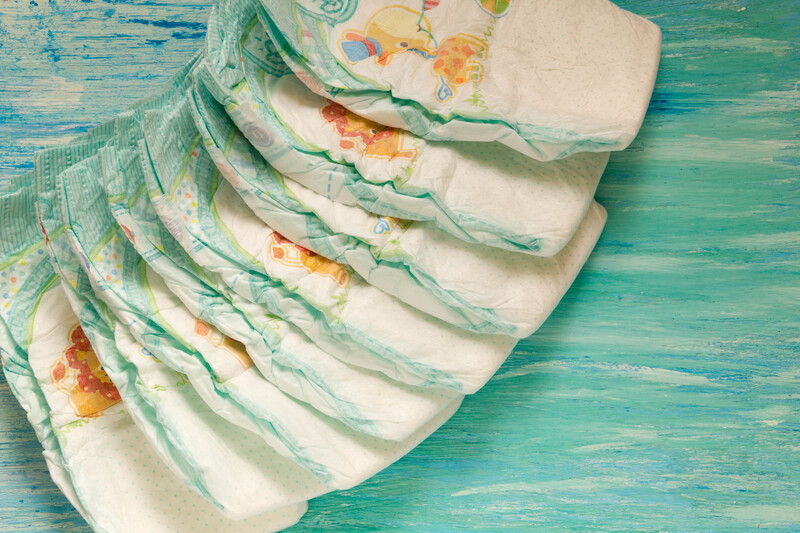How to Identify Safe Disposal Options for Your PPE Waste
With the global increase in the use of Personal Protective Equipment (PPE) during recent years, appropriate PPE waste disposal has become an environmental and public health necessity. Whether you're overseeing safety protocols in a workplace, managing a medical facility, or simply using PPE at home, understanding how to safely and responsibly dispose of expired or contaminated PPE is crucial. This comprehensive guide explores effective strategies, relevant regulations, and various safe disposal options for your PPE waste--ensuring eco-friendly and health-conscious practices.
Understanding PPE Waste: What It Is and Why It Matters
Personal Protective Equipment waste refers to discarded items such as masks, gloves, gowns, face shields, and other gear used to protect individuals from contaminants and infections. As their usage skyrocketed in healthcare settings, businesses, and everyday encounters, so did the corresponding PPE waste stream.
- Healthcare Facilities: Generate large volumes of PPE waste daily.
- Commercial Premises: Offices, restaurants, and warehouses have incorporated PPE into safety protocols.
- Households: Disposal from individuals using masks and gloves in public places.
Identifying safe PPE waste disposal options is critical due to the potential biological risks and the environmental threat of plastic pollution. Many PPE products are single-use and non-biodegradable, making their disposal a significant challenge.

PPE Waste Types and Their Risks
Types of PPE Waste
- Masks: Surgical, N95, cloth masks.
- Gloves: Latex, nitrile, vinyl, or polyethylene gloves.
- Protective Gowns and Aprons: Used in healthcare and laboratory settings.
- Face Shields and Goggles: Often reusable, but sometimes disposed of after contamination.
- Shoe Covers, Caps, and Other Accessories: Often made from synthetic materials.
Key Risks Linked to Improper PPE Waste Disposal
- Infection Transmission: Used PPE can carry pathogens. If not handled safely, it can contribute to community transmission of diseases such as COVID-19, influenza, or other contagions.
- Environmental Harm: Many PPE materials are plastics or synthetic fibers, posing significant threats to wildlife and ecosystems when not disposed of correctly.
- Waste Worker Safety: Sanitation personnel face elevated risk if PPE waste is not clearly segregated and managed.
Safe PPE Waste Disposal Options: An Overview
Choosing the right method for PPE waste disposal depends on the type and degree of contamination, regulatory requirements, and available local facilities. Here are the primary safe disposal options for PPE waste you can consider:
1. Municipal Solid Waste Disposal
For the general public and non-medical settings, most disposable PPE--such as face masks and gloves--can be disposed of with household trash if not contaminated with hazardous materials or bodily fluids. Here are the correct steps:
- Place used PPE in a sealable plastic bag, tie it tightly, and dispose of it in general waste bins.
- Avoid placing PPE in recyclable bins unless specified by your local waste authority.
- Wash your hands thoroughly after touching used PPE.
Note: Some urban areas provide separate collection bins specifically for PPE waste, helping to minimize handling risks to waste workers.
2. Red Bag Waste: Clinical and Medical PPE Disposal
Health care facilities, testing centers, and laboratories generate potentially infectious PPE waste. These must be disposed of as biohazardous, also known as "red bag" medical waste.
- Place used PPE in appropriately labeled red biohazard bags.
- Ensure bags are leak-proof and securely closed before disposal.
- Follow specific protocols for sharps disposal when PPE contains used needles or lancets.
Medical waste is handled by licensed disposal companies, which employ incineration or autoclaving (high-temperature steam treatment) to safely destroy contaminants.
3. PPE Recycling Options
With the environmental impact of disposable PPE more apparent than ever, some companies and localities have developed PPE recycling schemes, especially for masks and gloves made from polypropylene and other plastics.
- Look for designated PPE recycling drop-off points in hospitals, pharmacies, or large commercial buildings.
- Some recycling programs accept clean, uncontaminated PPE only.
- Large organizations may arrange collection with specialist recycling firms that convert used PPE into building materials or energy.
4. Dedicated PPE Collection Bins
Airports, shopping centers, and public buildings sometimes provide PPE-specific waste bins.
- These bins are designed to minimize handling and reduce spillage or contamination.
- PPE is typically sent for energy recovery or specialized landfill, depending on contamination levels.
5. Onsite Incineration for High-risk PPE Waste
Facilities with the appropriate infrastructure, such as hospitals or quarantine centers, may incinerate PPE waste internally. Incineration is effective for highly infectious or hazardous waste, fully destroying pathogens.
- Only trained personnel should manage incineration units.
- Adhere strictly to air quality and emissions regulations.
How to Identify Safe PPE Waste Disposal Options Locally
Step 1: Understand Local and National Regulations
- Consult Government Websites: Health, environment, and waste authority websites offer guidance tailored to your region.
- Check for Special COVID-19 Waste Guidelines: Many localities introduced new protocols during the pandemic for PPE waste.
- Know the Classification: In some areas, PPE from medical settings is classed as "clinical waste" and must be handled as such.
Adhering to these rules ensures not only environmental compliance but also public safety and reduced liability.
Step 2: Locate Suitable Disposal Facilities
- Contact Local Waste Collectors: Inquire if they accept PPE waste or provide special collection bags.
- Use Public Maps: Many cities provide online maps of PPE recycling centers or red bag waste disposal sites.
If you are a business, arrange regular pick-ups with certified clinical waste disposal companies when necessary.
Step 3: Segregate PPE Waste at Source
- Use Separate Bins: Mark PPE waste bins clearly and keep them distinct from general recyclables.
- Implement Double-Bagging: For highly contaminated PPE, double-bag before final disposal.
- Train Staff: Everyone handling or disposing of PPE should understand protocols to avoid accidental exposure.
Effective segregation simplifies subsequent disposal and helps protect waste workers and the wider community.
Best Practices for Responsible PPE Waste Disposal
1. Don't Litter
Discarded PPE, such as masks and gloves, are frequently seen in streets, parks, and waterways. Always dispose of PPE in a waste bin, never in nature.
2. Never Flush PPE Items
Flushing gloves, masks, or wipes down toilets can clog plumbing and lead to pollution in rivers and oceans. Dispose of all PPE waste in bins only.
3. Consider Alternatives to Single-Use PPE
- Use reusable masks or washable gowns when possible.
- Disinfect and wash reusable items according to manufacturer instructions.
This reduces the volume of PPE entering the waste stream--making safe disposal more manageable.
4. Protect Waste Collectors
- Label bags containing used PPE as a warning to sanitation workers.
- Where contamination is suspected, double bag to minimize risk.
- Encourage collection staff to wear their own PPE when handling potentially infectious waste.
5. Stay Up to Date with Disposal Innovations
New recycling technologies and biodegradable PPE are under development. Subscribe to newsletters from environmental organizations and industry leaders to stay in the loop on emerging safe PPE disposal options.
Case Studies and Real-World Examples
Many organizations and communities have pioneered innovative and sustainable PPE waste management solutions:
- TerraCycle: Operates a global PPE recycling program, accepting masks and gloves via mail-in boxes, recycled into plastic lumber and benches.
- UK National Health Service (NHS): Introduced PPE-specific bins in hospitals and partnered with recycling companies to reduce landfill.
- Several US Cities: Have installed public PPE drop bins and directed PPE waste to be processed as "energy from waste" rather than landfill.
These initiatives underscore the feasibility and benefits of identifying safe PPE waste disposal routes.

Frequently Asked Questions About PPE Waste Disposal
Can PPE Waste be Recycled?
Select types of clean, uncontaminated PPE--especially items made from polypropylene--may be recyclable through specialist programs. However, due to contamination risks, never place used PPE in your curbside recycling bin unless explicitly allowed by your waste authority.
What Should I Do With Used Masks and Gloves at Home?
Bag them securely, dispose of with regular household waste, and thoroughly wash your hands. Only use special bins or recycling schemes if your locality provides them.
Is Incineration Safe for PPE Waste?
High-temperature incineration is effective at neutralizing pathogens. It must be managed responsibly to control emissions and comply with environmental standards.
Can I Compost PPE?
Do not compost disposable PPE; most items are non-biodegradable plastics and can introduce toxins into your compost pile.
Conclusion: Towards Safer, Cleaner Environments
The increased use of PPE underscores the joint responsibility of individuals, organizations, and governments to dispose of PPE waste safely. How to identify safe disposal options for PPE waste is a matter of understanding your local guidelines, adopting best practices, and continually seeking innovative and eco-conscious solutions.
By following the simple steps outlined above--segregation, secure containment, appropriate bin usage, and awareness of recycling options--everyone can play a part in reducing infection risks and environmental pollution.
For up-to-date local disposal protocols, always check with your municipal waste authority or government health department. Safeguard your community's health and preserve the environment by choosing the safest PPE waste disposal options available.